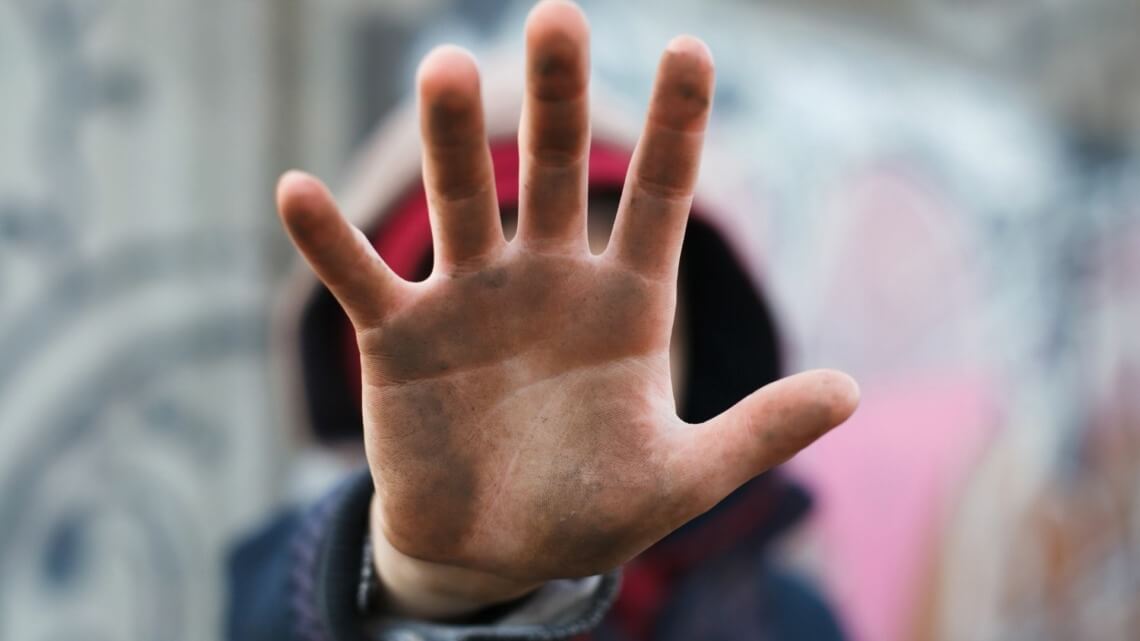YOUTH IN VULNERABLE SITUATIONS
Every day, an average of 5 to 20 unaccompanied foreign minors arrives or are identified in Belgium.[1] These are “unaccompanied minors” (UAM), who arrive without a parent or a person exercising parental authority. Some of them do not wish to stay in our country, a guardian of young UAM (CAP Brabantia- branch of Caritas International), Manou Bally, explains, “More and more young migrants transit through Belgium with the goal of reaching the United Kingdom or another European country.”
“Initially, these very vulnerable youth do not apply for international protection with us because they want to continue their journey to another country. For this reason, they attempt to come through unnoticed. These youth do not wish to be noticed by the Belgian authorities and therefore do not enter the official reception network,” continues Manou.
>> ALSO READ: Transmigrants: “These youth just want to build a future for themselves”
UAM in transit are one of the most vulnerable groups in the field of international protection and migration. “These youth often find themselves in complex legal situations and at risk of becoming victims of enforced disappearance, human trafficking, and illegal practices. Given their mistrust in the existing system and their reluctance to make their presence official in any manner, they rely on informal networks, where misinformation often circulates. The situation for minors is very different from that of adults.”
RAISE AWARENESS, INFORM, TRAIN, AND SUPPORT THESE YOUNG PEOPLE
The team of guardians (CAP Brabantia – branch of Caritas International) supports young UAM in transit and all relevant actors through raising awareness, spreading information, training, and support activities. It is particularly important to give the youth accurate information about the different possibilities for reception and protection that are available to them in Belgium, as well as available legal avenues for them to rejoin family members in other European countries.
“By offering them, for a limited time, accompaniment and intensive support geared towards their future prospects, the obstacles of accessing official networks of reception are reduced,” explains Manou. This first personalized contact with the reception network allows for the development of a trusting relationship with the youth in transit, and then facilitates their eventual access to the official reception network. In the long run, this would mean fewer disappearances.
The young UAM in transit can count on our support and primary care. Easily accessible, the support falls under two axes:
- Information: through individual informational sessions that include all aspects of protection and reception of the UAM. This is the first way to establish a trusting relationship with the youth.
- Referral to accessible reception sites: we offer them counseling and intensive support to help develop their future perspectives and envision their sustainable entry into the reception system.
SUPPORTING ALL ACTORS
We help all agencies that are in contact with these youth in vulnerable situations. When they are better informed, they will be able to better guide them:
- Discussion with the concerned actors: continued focus on the question of UAM in transit and sharing information on the realities of their experiences.
- Raise awareness of policymakers in the capital region of Brussels and of the aide services for youth: through appropriate training, we create awareness around the vulnerabilities and specific (reception) needs of this target group.
- Help desk: for the families volunteering to host youth via the Platforme citoyenne de soutien aux réfugiés (Citizen platform for support of refugees) and for specialized guardians.
- Formulating recommendations: for an adapted (pre-)reception of UAM in transit, grounded in our field experience and consultations with involved actors.










